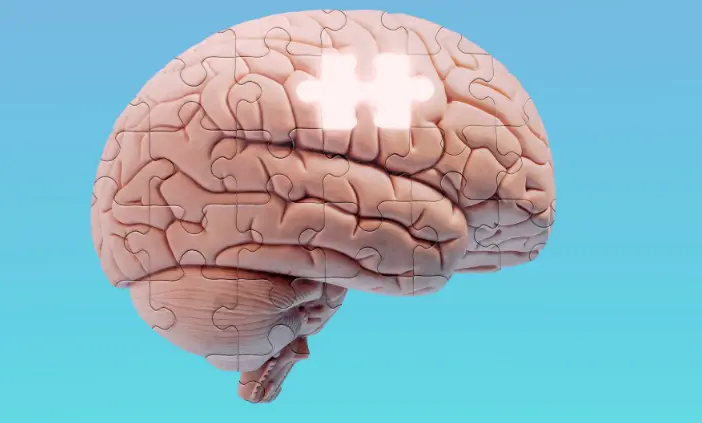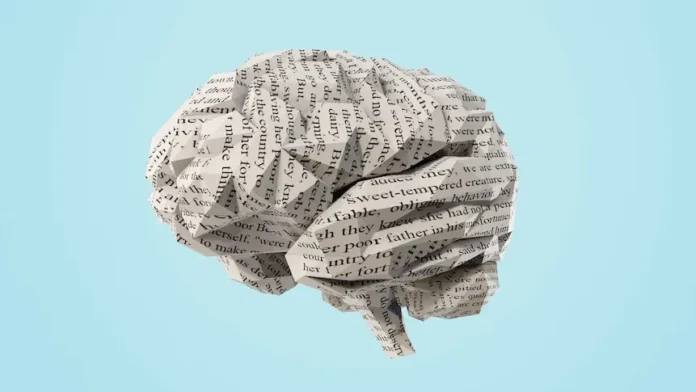No, your brain cannot technically run out of memory like a hard drive. The human brain has a virtually limitless capacity for learning and storing information, thanks to its complex neural networks and adaptability.
KumDi.com
Can your brain run out of memory like a smartphone or computer? The short answer is no—your brain doesn’t run out of memory in the same way digital devices do. With its remarkable ability to form new connections and reorganize itself, the brain’s memory capacity is incredibly vast and adaptable. In this article, we’ll explore how memory works, whether there’s a limit, and what you can do to maximize your mental performance.
The human brain is a marvel of biological engineering, capable of storing vast amounts of information and experiences throughout a lifetime. However, a common question arises: can our brains run out of memory? This inquiry delves into the complexities of memory storage, retrieval, and the factors that influence our cognitive capabilities. In this article, we will explore the intricacies of memory, how it functions, and whether there are limits to what we can remember.
Table of Contents
Understanding Memory Capacity
Memory capacity refers to the amount of information the brain can store. While estimates vary, research suggests that the average adult human brain can hold approximately 2.5 million gigabytes of data. This staggering figure is often compared to the storage capacity of modern digital devices, highlighting the brain’s remarkable ability to retain information.
The Nature of Memory Storage
Memory is not stored in a linear fashion like files on a computer. Instead, it is organized hierarchically, allowing for efficient retrieval. The brain utilizes a complex network of neurons and synapses to encode and store information. Each neuron can connect with thousands of others, creating intricate pathways that facilitate memory formation.
Types of Memory
Memory can be categorized into several types, each serving a distinct purpose:
- Sensory Memory: This is the brief retention of sensory information, lasting only a few seconds. It allows us to process stimuli from our environment.
- Short-term Memory: Also known as working memory, this type holds information temporarily for immediate use, typically lasting around 20 to 30 seconds.
- Long-term Memory: This is where information is stored for extended periods, potentially for a lifetime. Long-term memory can be further divided into explicit (declarative) and implicit (non-declarative) memory.
The Mechanics of Memory Formation
Memory formation involves three key processes: encoding, storage, and retrieval. Understanding these processes can shed light on how our brains manage information.
Encoding Information
Encoding is the initial step in memory formation, where sensory input is transformed into a format that can be stored. This process occurs in various brain regions, including the hippocampus and amygdala. Effective encoding is crucial for creating lasting memories.
Storing Memories
Once information is encoded, it is stored through changes in the strength of synaptic connections between neurons. This phenomenon, known as synaptic plasticity, allows memories to be retained over time. The brain’s ability to reorganize and strengthen these connections is vital for maintaining memory integrity.
Retrieving Memories
Retrieval is the process of accessing stored memories and bringing them back into conscious awareness. This involves activating specific neural circuits that were engaged during the encoding phase. The more frequently a memory is retrieved, the stronger the associated neural pathways become.
Can the Brain Run Out of Memory?
While the brain has an impressive capacity for storing information, it does not operate like a computer with finite storage space. Instead, the brain continuously adapts and reorganizes its memory networks. This leads to the question: can the brain truly run out of memory?
The Concept of Memory Limits
The brain does have limits to its memory capacity, but it does not “run out” of memory in the same way a hard drive might. Instead, new memories can replace older ones, a process akin to “garbage collection” in computer science. This means that as we accumulate new experiences, some older memories may fade or become less accessible.
The Role of Forgetting
Forgetting is a natural and necessary aspect of memory. It allows the brain to prioritize important information while discarding less relevant details. Studies suggest that individuals forget approximately 50% of newly learned information within an hour, and around 70% within a day. This phenomenon underscores the brain’s efficiency in managing its memory resources.
Factors Influencing Memory Capacity
Several factors can influence an individual’s memory capacity and performance. Understanding these factors can help us optimize our cognitive abilities.
Age and Memory
Age plays a significant role in memory function. Research indicates that memory performance peaks in our 20s and gradually declines thereafter. As we age, the brain undergoes structural changes that can impact memory retrieval and storage.
Health and Lifestyle
Overall health and lifestyle choices also affect memory capacity. Regular physical exercise, a balanced diet, and mental stimulation can enhance cognitive function. Conversely, conditions such as stress, anxiety, and neurological disorders can impair memory performance.
Emotional Impact on Memory
Emotions significantly influence memory formation and retrieval. Strong emotional experiences tend to create more vivid and lasting memories. This is why we often remember significant life events more clearly than mundane occurrences.
The Myth of Perfect Memory
While some individuals claim to possess perfect or photographic memory, such abilities are exceedingly rare. Most people experience varying degrees of memory accuracy and reliability.
Photographic vs. Eidetic Memory
Photographic memory refers to the ability to recall visual information with high precision. In contrast, eidetic memory is the ability to vividly recall images, sounds, or objects in great detail. While these abilities are fascinating, they are not universally applicable and are often exaggerated in popular culture.
Memory Distortion
Memory is not infallible; it can be influenced by biases, distortions, and external factors. Subsequent experiences can alter our recollections, leading to inaccuracies. This phenomenon highlights the importance of critical thinking when evaluating memories.
Strategies to Enhance Memory

While we may not be able to achieve perfect memory, there are effective strategies to improve our cognitive abilities and memory retention.
Practice and Repetition
Repetition is a powerful tool for reinforcing memories. Engaging with information multiple times strengthens neural connections, making it easier to recall later. Techniques such as spaced repetition can enhance long-term retention.
Mindfulness and Focus
Practicing mindfulness and maintaining focus during learning can significantly improve memory encoding. Reducing distractions and being present in the moment allows for deeper processing of information.
Healthy Lifestyle Choices
Adopting a healthy lifestyle can positively impact memory function. Regular exercise, a nutritious diet rich in antioxidants, and adequate sleep are essential for optimal cognitive performance.
The Future of Memory Research
As neuroscience continues to advance, researchers are uncovering new insights into the complexities of memory. Understanding the mechanisms behind memory formation and retrieval may lead to innovative approaches for enhancing cognitive function.
The Role of Technology
Emerging technologies, such as neuroimaging and brain-computer interfaces, are providing researchers with unprecedented access to the inner workings of the brain. These advancements may pave the way for new treatments for memory-related disorders.
The Quest for Memory Enhancement
The pursuit of memory enhancement is an ongoing area of research. Scientists are exploring various methods, including pharmacological interventions and cognitive training programs, to improve memory performance in individuals of all ages.
Conclusion
In summary, while the human brain has an impressive capacity for memory, it does not operate like a finite storage device. Instead, it continuously adapts and reorganizes its memory networks, allowing for the efficient management of information. Forgetting is a natural process that enables the brain to prioritize important memories while discarding less relevant details. By understanding the intricacies of memory and adopting strategies to enhance cognitive function, we can optimize our memory capabilities and navigate the complexities of life with greater ease.

FAQs
Can your brain actually run out of memory?
No, your brain doesn’t run out of memory. While you might feel mentally overloaded, your brain has an enormous capacity for storing information due to its adaptive neural networks.
How much memory can the human brain hold?
Scientists estimate the brain’s storage capacity to be around 2.5 petabytes, enough to store millions of hours of video or billions of pages of text.
Why does it feel like I forget things if the brain has so much memory?
Forgetting is a natural process. The brain filters out unnecessary data to focus on relevant information, which is essential for mental efficiency.
Is there a way to increase my brain’s memory capacity?
While the storage potential is vast, you can improve memory function with habits like sleep, nutrition, mental exercises, and learning new skills.
Can stress or fatigue make it harder for my brain to remember things?
Absolutely. Stress and lack of sleep impact how your brain stores and retrieves memories, making it seem like your memory is “full” or failing.





